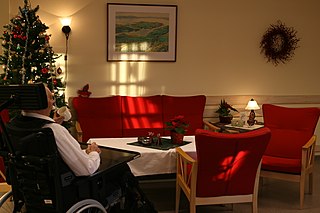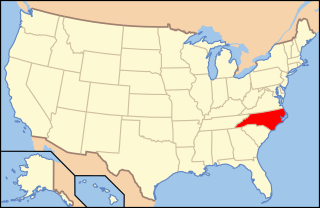Related Research Articles

The Emergency Medical Treatment and Active Labor Act (EMTALA) is an act of the United States Congress, passed in 1986 as part of the Consolidated Omnibus Budget Reconciliation Act (COBRA). It requires hospital emergency departments that accept payments from Medicare to provide an appropriate medical screening examination (MSE) for anyone seeking treatment for a medical condition regardless of citizenship, legal status, or ability to pay. Participating hospitals may not transfer or discharge patients needing emergency treatment except with the informed consent or stabilization of the patient or when the patient's condition requires transfer to a hospital better equipped to administer the treatment.

In the United States, Medicaid is a government program that provides health insurance for adults and children with limited income and resources. The program is partially funded and primarily managed by state governments, which also have wide latitude in determining eligibility and benefits, but the federal government sets baseline standards for state Medicaid programs and provides a significant portion of their funding.
A nursing home is a facility for the residential care of older people, senior citizens, or disabled people. Nursing homes may also be referred to as care homes, skilled nursing facilities (SNF) or long-term care facilities. Often, these terms have slightly different meanings to indicate whether the institutions are public or private, and whether they provide mostly assisted living, or nursing care and emergency medical care. Nursing homes are used by people who do not need to be in a hospital, but require care that is hard to provide in a home setting. The nursing home staff attends to the patients' medical and other needs. Most nursing homes have nursing aides and skilled nurses on hand 24 hours a day.
TennCare is the state Medicaid program in the U.S. state of Tennessee. TennCare was established in 1994 under a federal waiver that authorized deviations from the standard Medicaid rules. It was the first state Medicaid program to enroll all Medicaid recipients in managed care. When first implemented, it also offered health insurance to other residents who did not have other insurance. Over time, the non-Medicaid component of the program was significantly reduced. Today TennCare offers a large variety of programs to better serve the citizens of Tennessee.

Long-term care (LTC) is a variety of services which help meet both the medical and non-medical needs of people with a chronic illness or disability who cannot care for themselves for long periods. Long-term care is focused on individualized and coordinated services that promote independence, maximize patients' quality of life, and meet patients' needs over a period of time.

Supplemental needs trust is a US-specific term for a type of special needs trust. Supplemental needs trusts are compliant with provisions of US state and federal law and are designed to provide benefits to, and protect the assets of, individuals with physical, psychiatric, or intellectual disabilities, and still allow such persons to be qualified for and receive governmental health care benefits, especially long-term nursing care benefits, under the Medicaid welfare program.

The American Health Care Association (AHCA) is a non-profit federation of affiliated state health organizations that represents more than 14,000 non-profit and for-profit nursing homes, assisted living communities, and facilities for individuals with disabilities. The organization's president and CEO is Mark Parkinson, a former governor of Kansas. The National Center for Assisted Living (NCAL) is a part of the AHCA.

The Massachusetts health care reform, commonly referred to as Romneycare, was a healthcare reform law passed in 2006 and signed into law by Governor Mitt Romney with the aim of providing health insurance to nearly all of the residents of the Commonwealth of Massachusetts.
The California Medical Assistance Program is the California implementation of the federal Medicaid program serving low-income individuals, including families, seniors, persons with disabilities, children in foster care, pregnant women, and childless adults with incomes below 138% of federal poverty level. Benefits include ambulatory patient services, emergency services, hospitalization, maternity and newborn care, mental health and substance use disorder treatment, dental (Denti-Cal), vision, and long-term care and support. Medi-Cal was created in 1965 by the California Medical Assistance Program a few months after the national legislation was passed. Approximately 15.28 million people were enrolled in Medi-Cal as of September 2022, or about 40% of California's population; in most counties, more than half of eligible residents were enrolled as of 2020.
Program of All-inclusive Care for the Elderly (PACE) are programs within the United States that provide comprehensive health services for individuals age 55 and over who are sufficiently frail to be categorized as "nursing home eligible" by their state's Medicaid program. The ultimate goal of PACE programs is to keep eligible older adults out of nursing homes and within their communities for as long as possible. Services include primary and specialty medical care, nursing, nutrition, social services, therapies, pharmaceuticals, day health center services, home care, health-related transportation, minor modification to the home to accommodate disabilities, and anything else the program determines is medically necessary to maximize a member's health. If you or a loved one are eligible for nursing home level care but prefer to continue living at home, a PACE program can provide expansive health care and social opportunities during the day while you retain the comfort and familiarity of your home outside of day hours.
The United States government provides funding to hospitals that treat indigent patients through the Disproportionate Share Hospital (DSH) programs, under which facilities are able to receive at least partial compensation.
The Albany Health and Human Services Corporation (AHHSC) is a proposed public benefit corporation (PBC) of Albany County, New York, and New York State. On May 11, 2009, Albany County Comptroller Michael Conners in his "2009 State of Fisc" proposed a PBC for health in Albany County. On June 9, 2009, the Albany County, Legislature adopted Resolution 205, which directs the County Executive to develop a plan for the long-term care of the elderly in Albany County.
The Missouri Department of Social Services (DSS) is a state agency of Missouri. It has its headquarters in the Broadway State Office Building in Jefferson City. The department operates the state's social services.
Intermediate Care Facilities for Individuals with Intellectual Disabilities (ICF/IID), formerly known as Intermediate Care Facilities for Mental Retardation (ICF/MR), is an American Medicaid-funded institutional long-term support and service (LTSS) for people with intellectual disabilities or related conditions. Section 1905(d) of the Social Security Act enacted benefits and made funding available for "institutions" for individuals with intellectual or related conditions. According to federal law 42 CFR § 440.150 the purpose of ICD/IIDs is to "furnish health or rehabilitative services to persons with Intellectual Disability or persons with related conditions."

The state of North Carolina is undertaking a comprehensive policy shift on how the government budgets for and manages resources for mental health, developmental disability, and substance abuse services. The 1915 (b)(c) Medicaid Waiver Program was chosen by the North Carolina Department of Health & Human Services, Division of Medical Assistance as a way to control and more accurately budget for the rising costs of Medicaid funded services. The 1915 (b)(c) Waiver Program was initially implemented at one pilot site in 2005 and evaluated for several years. Two expansion sites were then added in 2012. Full statewide implementation is expected by July 1, 2013.
The Affordable Care Act (ACA) is divided into 10 titles and contains provisions that became effective immediately, 90 days after enactment, and six months after enactment, as well as provisions phased in through to 2020. Below are some of the key provisions of the ACA. For simplicity, the amendments in the Health Care and Education Reconciliation Act of 2010 are integrated into this timeline.
The Utah HCBS waiver program is a state-run program that serves individuals in Utah with intellectual disabilities or related conditions (ID/RC). HCBS stands for Home and Community-Based Services.
Patient navigators educate and assist United States citizens in enrolling into health benefit plans stipulated in the Patient Protection and Affordable Care Act (ACA). Patient navigators are also called "insurance navigators" or "in-person assisters" who have defined roles under the ACA. Although their roles might overlap, patient navigators are not community health workers or health advocates. "Navigators" work in states with Federally-Facilitated Exchanges (FFEs) or State Partnership Exchanges.
As of 2017, approximately 1.4 million Americans live in a nursing home, two-thirds of whom rely on Medicaid to pay for their care. Residential nursing facilities receive Medicaid federal funding and approvals through a state health department. These facilities may be overseen by various types of state agency.

Home and Community-Based Services waivers or Section 1915(c) waivers, 42 U.S.C. Ch. 7, § 1396n §§ 1915(c), are a type of Medicaid waiver. HCBS waivers expand the types of settings in which people can receive comprehensive long-term care under Medicaid. Prior to the creation of HCBS waivers, comprehensive long-term care was available through Medicaid only in institutional settings. Under an HCBS waiver, states can use Medicaid funds to provide a broad array of non-medical services not otherwise covered by Medicaid, if those services allow recipients to receive care in community and residential settings as an alternative to institutionalization.
References
- ↑ "Waivers". Medicaid.gov. Centers for Medicare & Medicaid Services . Retrieved January 10, 2014.
- ↑ "MedicaidWaiver.org". medicaidwaiver.org.